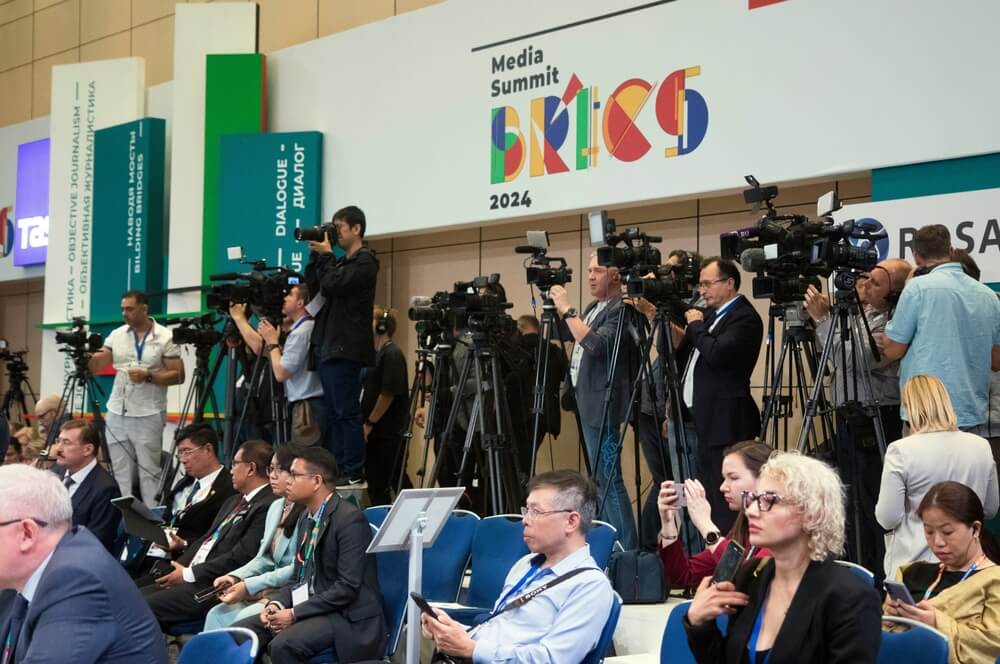The flare-up of conflicts in the Middle East puts pressure on Iran's principal global partners—China and Russia—to stand more decisively with their ally, but they have many limitations to meet Tehran's high expectations.
Moscow, and especially Beijing, are trying to take a balanced position towards the escalation in the Middle East, calling for peace and asking for the UN to play a greater role in calming the conflict. However, for Tehran, this approach falls short of what is required and expected.
On Tuesday, Iran launched a new missile attack on Israel, starting a direct confrontation, knowing that the latest Israeli operations had decimated the forces of its proxies in the region, particularly Hezbollah, which is the strongest.
It is not a positive development for Iran's major global partners. Neither China nor Russia have an interest in Iran's direct involvement in the conflict with Israel because it inevitably raises their level of involvement, which they want to avoid.
Support in words
As expected, Moscow accused the US of being responsible for the escalation of the conflict, claiming "a complete failure of the Biden administration in the Middle East."
Beijing firmly adheres to the principled call for restraint, appeals for easing of tensions, and refers to dialogue within the UN, a path Iran itself has taken since it requested an urgent session of the UN Security Council.
The developments in the Middle East have already exceeded the framework in which both Russia and China can continue to play the role of "benevolent" peacemakers
However, the developments in the Middle East have already greatly exceeded the framework in which both Russia and China can continue to play the role of "benevolent" peacemakers, while at the same time cultivating a close alliance with Tehran.
By decimating the potential of Hezbollah as Iran's principal militant lever in the region, Israel changed the regional security dynamics in its favour.
Iran's missile attack on Israel on October 1, in addition to drawing Tehran directly into the conflict, is forcing its allies in Beijing and Moscow to engage more decisively.
Chinese restraint
However, this development negatively impacts Beijing, as it directly challenges its two dominant interests in the region. Tehran's escalation, first by intensifying Hezbollah's actions against Israel, and especially with the new direct attack on October 1, is a blow to China's efforts to establish itself as a new influential player in the region and displace traditional American influence.
Chinese diplomacy has put a lot of effort into that positioning, first by mediating in last year's thaw between Iran and Saudi Arabia, as well as in the recent mediation between all Palestinian factions, which concluded an agreement on joint participation in the future government in Beijing last July.
The escalation, which was first initiated by Iran through Hezbollah and then directly, is not wanted by influential regional factors, including Saudi Arabia, which is crucial for Chinese interests in the region.
Rising tensions directly threaten China's economic interests
More importantly for Beijing, rising tensions directly threaten its economic interests, given China's heavy reliance on Iranian oil. If Israel takes military actions against Iran's oil facilities, which is one of the counter-strike options, it will cause a major economic headache for Beijing.
Moreover, oil prices increased by 2.6% on Wednesday, the day after Iran attacked Israel, reflecting the market's reaction to the escalation of conflict in the Middle East. China, which procures a significant amount of oil (at least 10% of its needs) from Iran at lower prices due to sanctions against Tehran, does not want this kind of development.
Tough topics at the BRICS summit
Russia, on the other hand, relies on long-term and growing military cooperation with Iran, which is its major arms supplier and largely indispensable for supplying its invasion troops in Ukraine.
The latest developments, however, force Tehran to increase the supply of weapons to its proxies in the region, especially after a series of devastating actions by Israel against Hezbollah's weapons stockpiles in Lebanon.
 The major dilemmas in the allied triangle of Iran, China, and Russia will be at the top of their leaders' agendas at the forthcoming BRICS summit
The major dilemmas in the allied triangle of Iran, China, and Russia will be at the top of their leaders' agendas at the forthcoming BRICS summit
Also, Iran will increasingly turn to safeguarding its security resources as a precaution against a possible escalation of direct conflict with Israel. This weakens its potential to meet Russia's enormous weapons needs.
These major dilemmas in the allied triangle of Iran, China, and Russia will undoubtedly be at the top of their leaders' agendas at the forthcoming BRICS summit, of which they are members, at the end of the month in Kazan, Russia.
It will be Iran's first participation in the meeting of the leaders of the organisation of which it recently became a member, and it will definitely be in a position to demand a more decisive alignment of China and Russia on its side in the Middle East turbulence.
Neither of Iran's major partners wants this path. Beijing wants to maintain its influence in the Middle East in the same way it has done so far: to invest as little as possible and get as much as possible.
Russia does not want its strategic partner and arms supplier to stop deliveries, as it has growing security problems of its own.
In terms of its drive for armed revenge, whether through decimated proxies or directly, Tehran faces a challenge, and it is unlikely that it will receive the kind of backup it expects from its principal global partners.